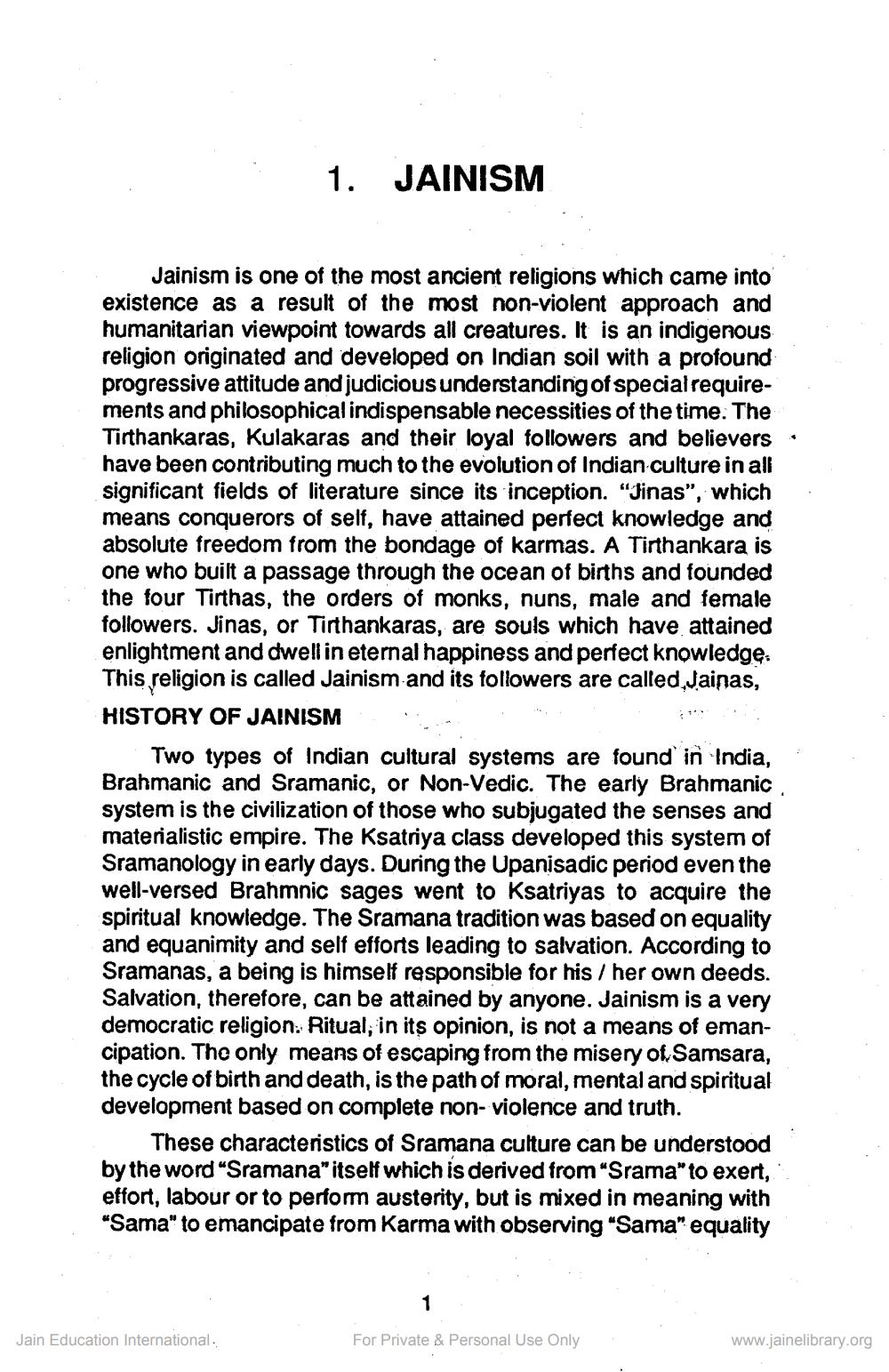Book Title: Jainism and Mahavira Author(s): Bhagchandra Jain Bhaskar Publisher: Digambar Jain Sahitya Sanskriti Sanskaran Samiti View full book textPage 7
________________ 1. JAINISM Jainism is one of the most ancient religions which came into existence as a result of the most non-violent approach and humanitarian viewpoint towards all creatures. It is an indigenous religion originated and developed on Indian soil with a profound progressive attitude and judicious understanding of special requirements and philosophical indispensable necessities of the time. The Tirthankaras, Kulakaras and their loyal followers and believers. have been contributing much to the evolution of Indian culture in all significant fields of literature since its inception. "Jinas", which means conquerors of self, have attained perfect knowledge and absolute freedom from the bondage of karmas. A Tirthankara is one who built a passage through the ocean of births and founded the four Tirthas, the orders of monks, nuns, male and female followers. Jinas, or Tirthankaras, are souls which have attained enlightment and dwell in eternal happiness and perfect knowledge: This religion is called Jainism and its followers are called Jainas, HISTORY OF JAINISM Two types of Indian cultural systems are found in India, Brahmanic and Sramanic, or Non-Vedic. The early Brahmanic system is the civilization of those who subjugated the senses and materialistic empire. The Ksatriya class developed this system of Sramanology in early days. During the Upanisadic period even the well-versed Brahmnic sages went to Ksatriyas to acquire the spiritual knowledge. The Sramana tradition was based on equality and equanimity and self efforts leading to salvation. According to Sramanas, a being is himself responsible for his / her own deeds. Salvation, therefore, can be attained by anyone. Jainism is a very democratic religion. Ritual, in its opinion, is not a means of emancipation. The only means of escaping from the misery of Samsara, the cycle of birth and death, is the path of moral, mental and spiritual development based on complete non-violence and truth. These characteristics of Sramana culture can be understood by the word "Sramana" itself which is derived from "Srama" to exert, effort, labour or to perform austerity, but is mixed in meaning with "Sama" to emancipate from Karma with observing "Sama" equality Jain Education International. For Private & Personal Use Only www.jainelibrary.orgPage Navigation
1 ... 5 6 7 8 9 10 11 12 13 14 15 16 17 18 19 20 21 22 23 24 25 26 27 28 29 30 31 32 33 34 35 36 37 38 39 40 41 42 43 44 45 46 47 48 49 50 51 52 53 54 55 56 57 58 59 60 61 62 63 64 65 66 67 68
